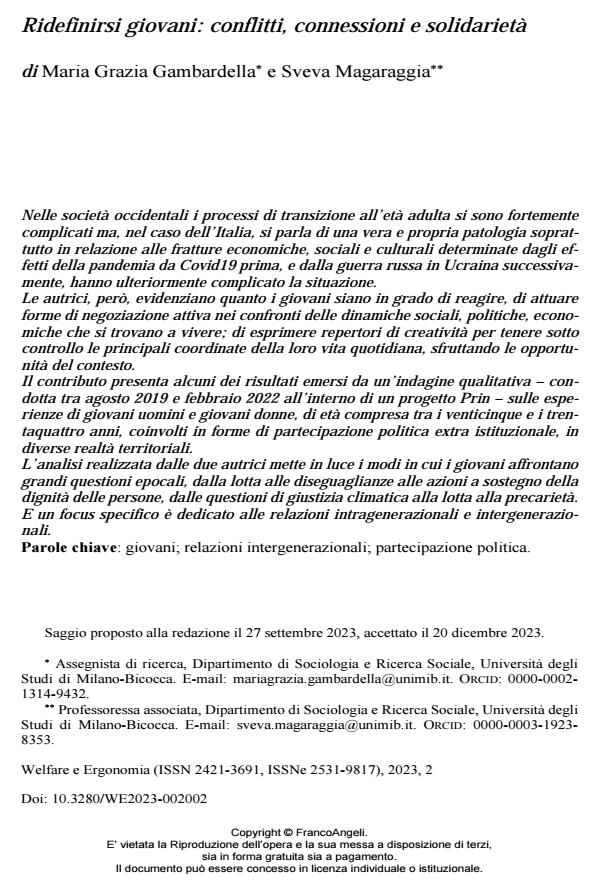Redefining youth: Conflict, connection and solidarity
Journal title WELFARE E ERGONOMIA
Author/s Maria Grazia Gambardella, Sveva Magaraggia
Publishing Year 2024 Issue 2023/2
Language Italian Pages 12 P. 17-28 File size 197 KB
DOI 10.3280/WE2023-002002
DOI is like a bar code for intellectual property: to have more infomation
click here
Below, you can see the article first page
If you want to buy this article in PDF format, you can do it, following the instructions to buy download credits

FrancoAngeli is member of Publishers International Linking Association, Inc (PILA), a not-for-profit association which run the CrossRef service enabling links to and from online scholarly content.
In Western societies, the processes of transition to adulthood have become highly complicated but, in the case of Italy, they have all the characteristics of a real pathology especially in relation to the economic, social and cultural rifts determined by the effects of the Covid19 pandemic first, and the Russian war in Ukraine later. The authors, however, highlight how young people are able to react, to imple-ment forms of active negotiation towards the social, political and economic dynamics they find themselves experiencing; to express repertoires of creativ-ity to keep the main coordinates of their daily lives under control, taking ad-vantage of the opportunities of the context. This paper contains some of the results that emerged from a qualitative inves-tigation – done between August 2019 and February 2022 as a part of a larger Prin project – on the experiences of young men and young women, aged be-tween 25 and 34, involved in forms of extra-institutional political participa-tion, in different territorial realities. The analysis carried out by the two authors highlights the ways in which young people face great epochal issues, from the fight against inequalities to actions in support of people's dignity, from issues of climate justice to the fight against precarity. And a special focus is reserved to intragenerational and intergenerational relationships.
Keywords: Youth generation; intergenerational relationships; political participation.
Maria Grazia Gambardella, Sveva Magaraggia, Ridefinirsi giovani: conflitti, connessioni e solidarietà in "WELFARE E ERGONOMIA" 2/2023, pp 17-28, DOI: 10.3280/WE2023-002002